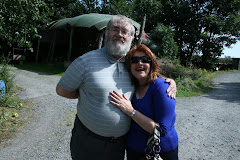Before Freud described the dark battles going on in the minds of men and Jung unveiled the world of the collective unconscious filled with prototypes and symbols, poets, writers and painters had long since discovered all this, and more. Their dreams had been mines of information on every subject under the sun, inspiring them to reflect on the profound psychological and paradoxical nature of man.
Expressing that confrontation of repressed savagery and open benevolence present within the authors and other artists, we find literary revelations that could easily have come straight from the confidential casebook of a present-day psychiatrist. The fears of hell and visions of horror were therefore recognized ages ago, as aspects of one's darker unknown self.
Neither Freud's generation, nor Freud himself, should have been surprised by his discoveries concerning man's true self if they had read earlier literature. The symbolic paradise dream, set in a personal garden of delight, was seen and written about in terms of compensation and wish-fulfilment, a long time before it received the analytical Freudian treatment. Throughout Shakespeare's work, run themes and references to sleep and dreams conveying those states of reality and illusion between which we so often find ourselves trapped.
The author Robert Louis Stevenson who was fortunate in that he remembered most of his dreams, in his book 'Across The Plains' he described how complete stories came to him during sleep. Each night he would pick up the fantasy-thread where he had left it the night before and carry on from there. In Shakespeare's Hamlet we find: ' To sleep, to sleep, perchance to dream - ay, there's the rub; for in that sleep of death what dream may come when we have shuffled off this mortal coil ?
Subscribe to:
Post Comments (Atom)
































































.jpg)
.jpg)










































18 comments:
Another strange coincidence, Maria, because according to the timings at almost the exact moment you were writing about Jung, I was emailing you about him.
Spooky.
Maria, have I commented yet on that picture of the dog? It's a lovely picture, and I especially like the leg crossing over.
Thank you Robert ! Yes, that was strange. It all started with Southend.
I have found a really nice story concerning syncronicity.
In his memoirs, the French writer Emile Deschamps claims he was treated to some plum pudding by a stranger named Monsieur de Fontgibu. 10 years later, the writer encountered plum pudding on the menu of a Paris restaurant and wanted to order some, but the waiter told him that the last dish had alread been served to another custumer who turned out to be de Fontgibu. Many years later, in 1832, Emile Deschamps was at a dinner and was once again offered plum pudding. He recalled the earlier incident and told his friends that only de Fontgibu was missing to make the setting complete and in the same instant, the now senile de Fontgibu entered the room.
That's rather uncanny, isn't it? Surely these two men's destinies are not linked together by a thing like plum pudding? Yet one does here of these amazing stories, where the coincidence doesn't necessarily have anything to do with momentous events or anything like that, but - as here - plum pudding!
A famous Chinese sage said:
While men are dreaming they do not perceive that it is a dream. Some will even have a dream within a dream. And so when the great awakening comes upon us, shall we know this life to be a great dream. Fools believe themselves to be awake now !
Many inventors have to thank their dreams for their unique observations and discoveries, which later contributed to the development of our society.
In a recurring dream James Watt found himself walking, time and time again, through a rain of heavy lead pellets. Eventually, this persistent scene crystallized into the message that if molten lead was dropped from a great height it would form into small spheres. He tested this out and found it did just that. He had discovered ballbearings and never had the dream again.
Many musicians have heard their compositions in their dreams and one of the most exciting examples of this concerns a sonata called The Devil's Trill. Giuseppe Tartini, the italian composer, related to Lanslande, the astronomer, the origin of a sonata he had written when he was twenty one. This was recorded in Lanslande's acount of his world travels and encounters. Apparently, Tartini dreamed he sold his soul to the devil and then he gave him his violin as well, to see if he could play it. This is what he told Lanlande:
" What was my astonishment when I heard him play with consummante skill a sonata of such exquisite beauty that it surpases the most audacious dreams of my imagination. I was delighted, transported, enchanted, I was breathless and I woke up. Seizing my violin I tried to reproduce the sound I had heard. But in vain. The piece I composed, The Devil's Trill, was the best I had written, but how remote it was from the one in my dream. "
Hi Maria
I used to get dreams within dreams. I've also sometimes awoken with music going round my head. As far as I've been able to recall, it isn't music I've heard before, though it's possible I've subsconsciously remembered tunes I've heard years before. Since I do not have any theoretical musical training, I can never write down these tunes, and most end up forgotten. The best I could do to retain them would be to buy a tape recorder and hum them into the microphone.
There was a famous example of a scientist who unravelled the structure of a very complicated molecule while he was asleep. He dreamt he saw dancing monkeys, and the positions of the monkeys corresponded to the positions of the atoms in the molecule.
Hi Robert,
Paul McCartney never had any musical training of any kind and only recently, he thought he might get some, but he was told that as he had such an innate ability to compose music, maybe a formal training would hamper his natural flair and ability since some of his music is quite unconventional. One of my favourite compositions of Paul Mc Cartney is: Yesterday. All my troubles seem so far away...
Yesterday was conceived in a dream Mc Cartney had with his dead mother.
I know about another scientist who made a discovery through a dream. His name was Fredrich August von Kebule. His opening remark and request in a conference : 'Let us learn to dream, gentlemen' a professor of Chemistry at Ghent, had to offer to a scientific convention in 1890. To explain this he related his own profitable experience from doing just that. Having struggled for some time without success to discover the molecular structure of trimethylbenzine, he went on to describe how the solution came to him in a dream:
" I turned my chair to the fire and dozed. Again the atoms were gambolling before my eyes. This time the smaller groups kept modestly in the background. My mental eye, rendered more acute by reapeated vision of this kind, could now distinguish larger structures, of manifold conformation; long rows, sometimes more clsoely fitted together: all twining and twisting in snake-like motion: But look! What was that? one of the snakes had siezed hold of its own tail and the form whirled mockingly before my eyes. As if in a flash of lightning, I awoke.
By the snake taking its tail into its own mouth, professor Kekule was able to transform it into the closed chain or ring theory underlying the constitution of benzene a discovery that later revolutionized organic chemestry.
Hi Maria
Yes, I think that's the one I was thinking of. According to what I just read, the monkey story may have been a spoof of the snake story, written by someone else.
Robert you will find this other detail VERY interesting! about Yesterday.
According to biographers of Mc Cartney, he composed the entire melody in a dream one night in his room at the Wimpole Street home of his then girl-friend Jane Asher and her family, upon waking, he hurried to a piano and played the tune to avoid letting it slip into the recesses of his mind.
Mc Cartney's initial concern was that he had subconsciously plagiarised someone else's work (known as cryptonnesia) As he put it. "For about a month, I went round to people in the music business and asked them whether they had heard this song before. Eventually, it became like handing something over to the police. I thought if no one claimed it after a few weeks, then I could have it. Upon being convinced that he had not robbed anyone of his melody, Mc Cartney began writing lyrics to suit it. As Lennon and Mc Cartney were known to do at this time, a substitute working lyric, entitled "scrambled eggs" was used for the song, until something more suitable was written. Then one morning Paul woke up and the song and the title were both there completed.
Robert, maybe that's what happened to you when you woke up with those songs, that maybe you had heard them before but in reality, they were all original. Perhaps you should record the hummings, just so that you do not forget the tune and then ask Jenny to play it for you. For all we know, you may have slipped being a millionaire with your music for ignoring your dreams!
Ah Maria, if only I did have some musical ability! Well, I'll see if anything comes to me.
Funnily enough, although I agree that "Yesterday" was a great song, I don't think it's the best song Paul ever wrote, e.g. "And I Love Her" is a better song in my opinion.
Yea, Yea !
Have you seen the anthology about the Beatles the BBC has been showing lately? Really excellent. I love the protest songs John made when he was in the U.S. where Edgar Hoover made an FBI file on John for considering him a "threat" to the American system. I like the song: "All we are saying... is give Peace a chance" its so simple and yet, so powerful. If John had been alive now, he probably would have opposed and moved heaven and earth to stop the coward invasion to Iraq.
John Lennon gave his music to the peace movements around the world and his music is timeless.
Hi Maria
Well, some of the protest stuff is OK, but I actually think that John's main talent was for writing beautiful love songs, e.g. "Oh My Love," "If I Fell," "Love," "Not A Second Time," "Woman," "I'll Be Back," "This Boy," "Ask Me Why." I often find myself a bit bemused by the fact that I tend to prefer John's songs to Paul's, because it seems that objectively Paul's songs like "Yesterday" are better, and yet John's songs move me more than Paul's. It's very strange. There must be some magic John ingredient at work somewhere!
It is interesting you should say that Robert,
Since Art is suppose to make you feel something, move you or have a reaction of some kind, not necessarily pleasant, it could also be scary or disdain or hate or something. A work of art that does not move you it is simply as tasteless as a cooked potatoe without salt ! its nothing at all ! it has to have something to hold your attention. So John's music is more what art should do, than just a pretty melody. But then... we are all different and whatever moves one person it doesn't do much for another. I just love, "A Long and Winding Road" that leads me to your door...
Another example, my brother just looked at my blog and he said that his most favourite picture was the dog with the cross legs, he liked that more than any of the other pictures here. Some people are indifferent to flowers but a flower lover would probably like those instead.
The worst escenario for an artist is, if the audience doesn't feel a thing, when looking at his/her work of art. Look at me and Harry Potter it has a soporific effect, five minutes on the film and I have fallen asleep. My aunt is the same with Harry Potter's films but these doesn't mean that its bad, since the following for the books and films is staggering its just that its really not my cup of tea!
It is said that William Blake's drawings are anatomically incorrect yet they move people to look and appreciate them at another level because of what they feel when they look at them.
We will have to leave this conversation for another time, when I get back. Just now, I have been informed that my mother passed away a few minutes ago, so I will be away for a while. Take lots of care.
Maria, I've sent you an email. Take care.
Maria,
I have just seen your sad news, my thoughts are with you at this time.
Wishing you love and strength.
Thank you my friends,
In thought you are never far apart from someone who is close in heart.
Love
Maria
Post a Comment